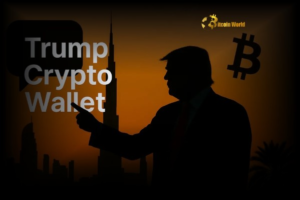As the crypto industry matures and public perception becomes more critical to adoption and regulation, opinion pieces, often dismissed as hot takes, are emerging as powerful tools in shaping the Web3 narrative.
In the latest episode of Decentralize with Cointelegraph, we sit down with three insider voices to explore the evolving role of opinion in crypto media: Cath Jenkin, opinion editor at Cointelegraph; Nikki Brown, chief strategy officer of Melrose PR; and Amal Ibraymi, legal counsel at Aztec Network.
Breaking down op-eds
The discussion highlights the growing strategic value of op-eds in crypto media — not only as vehicles for thought leadership but as instruments of influence.
According to Jenkin, the best opinion pieces are arguments, “but you’re not actually arguing with someone, you’re arguing the points, and people sometimes get that a little confused.”
“You’re not explaining the state of the industry. You are assessing a key argument around the industry, and the more that we apply critical thinking to our sector, the better we’re building a community.”
The conversation also dives into the ethics of opinion publishing. What distinguishes genuine thought leadership from strategic PR? How do editors vet for credibility, transparency,and long-term value in a world full of pump pieces and token promotion?
Related: Crypto has a structural optimism built to withstand crises
For Brown, who advises founders and projects on public positioning, educating clients and highlighting the value of thought leadership is critical.
“I think the value is it’s great to hear the facts when it comes to news, but sometimes we need a little assistance to make sense of what the repercussions are going to be or the next steps for how a regulation is going to be applied to the real world.”
Opinions have influence
The episode also explores how opinions can directly influence policy. Ibraymi reflects on the increasing attention regulators are paying to the crypto narrative and how legal voices must help demystify complex issues for the public without oversimplifying them.
“We know for a fact a lot of the regulators are paying attention to these op-eds, even though maybe some of the principals are not reading the op-eds, their staffers are.”
Ibraymi stressed the importance of op-eds in this scenario, as political staffers are the people who are preparing the memos and preparing early drafts for specific frameworks at times. “Even a publication doesn’t get a lot of traction at first,” she said. “I found it extremely helpful to just have it in your back pocket.”
Beyond industry impact, the episode offers a reader’s guide for critically consuming op-eds: how to spot bias, interpret credentials and engage with divergent viewpoints in a healthy way.
Looking ahead, the guests also weigh in on the future of editorial voice in Web3. Will AI-generated op-eds become the norm?
Listen to the full conversation in the latest episode of Decentralize with Cointelegraph on Cointelegraph’s Podcasts page, Apple Podcasts or Spotify. And don’t forget to check out Cointelegraph’s full lineup of other shows!
Magazine: Legal Panel: Crypto wanted to overthrow banks, now it’s becoming them in stablecoin fight
Read the full article here










